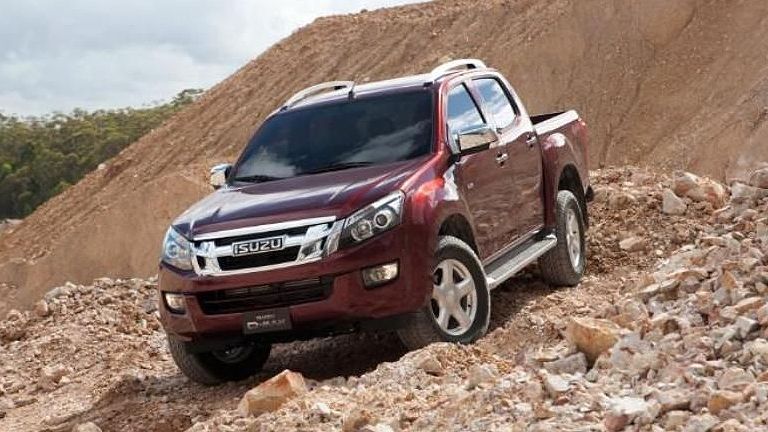General Motors and Isuzu Motor Company have parted ways on developing midsize pickups. The two automakers came to the mutual agreement as GM focuses on higher-spec models, while Isuzu continues to cater to commercial markets. This ends a deal penned in 2014 for building midsized pickups as part of a joint product development arrangement struck in 2006.
An Isuzu spokesman told Reuters, “The direction each company wanted to take for the vehicles was changing.” A GM statement regarding the split echoed Isuzu’s, saying, "Both GM and Isuzu agree that due to unique requirements for each company, joint development of the next-generation midsize pick-up truck for (GM) markets is no longer the optimal model for this project."
Currently the automakers produce several models together. The Chevrolet Colorado (the global truck, not the U.S.-spec truck GM built on its own) and Isuzu D-Max are nearly clones of each other, with Chevy selling in Australia and the Middle East, while Isuzu is sold in Asia and other countries. Chevy also builds an SUV based off the Colorado and the Trailblazer, which also sold in Asia and Australia.
What’s more, the break-up allows for Isuzu’s partnership with Mazda – a joint venture announced in July 2016. Details are still scarce, but it’s likely the Mazda BT-50 and Isuzu D-Max will be replaced with a single pickup, badge-engineered for each automaker. We don’t expect either truck to be offered inside the U.S.
Nevertheless, GM and Isuzu will continue their partnership of building medium-duty commercial trucks. This partnership is only a year old, having been struck in June of 2015, but is reminiscent of the pair’s past partnership in the medium-duty segment, which ended in 2009.
The deal allows Chevrolet to badge-engineer Isuzu’s N-Series Low Cab Forward trucks as its own, while Isuzu benefits from having access to GM’s 6.0-liter gasoline V-8 for both Isuzu and Chevy versions of the N-Series. Overseas versions of the N-Series will come with a variety of Isuzu-built diesel engines.
GM’s next global midsize pickup will be developed in-house, allowing the automaker full control of its product. Expect to see a more luxurious and comfortable Colorado pickup debut in the next few years.
Continue reading for more information.
Why It Matters
Partnerships between automakers are generally a big deal. It often means vehicles will be co-engineered and share parts like drivetrain and structural components. This helps automakers share the large costs of vehicle development, but also leverages each automaker’s strengths while minimizing weakness.
But as we’ve seen with GM and Isuzu, partnerships can be strained when a product’s direction is called into question.
This split can be seen as good news for GM and Isuzu. For GM, it can focus on delivering high-quality pickups aimed at the general public, whose thirst for more comfortable pickups continues to rise. For Isuzu, it will be able to cater to its commercial sales without shouldering the extra development costs of more refined components like smooth-riding suspensions and acoustically tuned interiors. These trucks will in turn be less expensive for fleet buyers. Hopefully Isuzu’s new partnership with Mazda won’t impede its ability to cater to the commercial segment.

